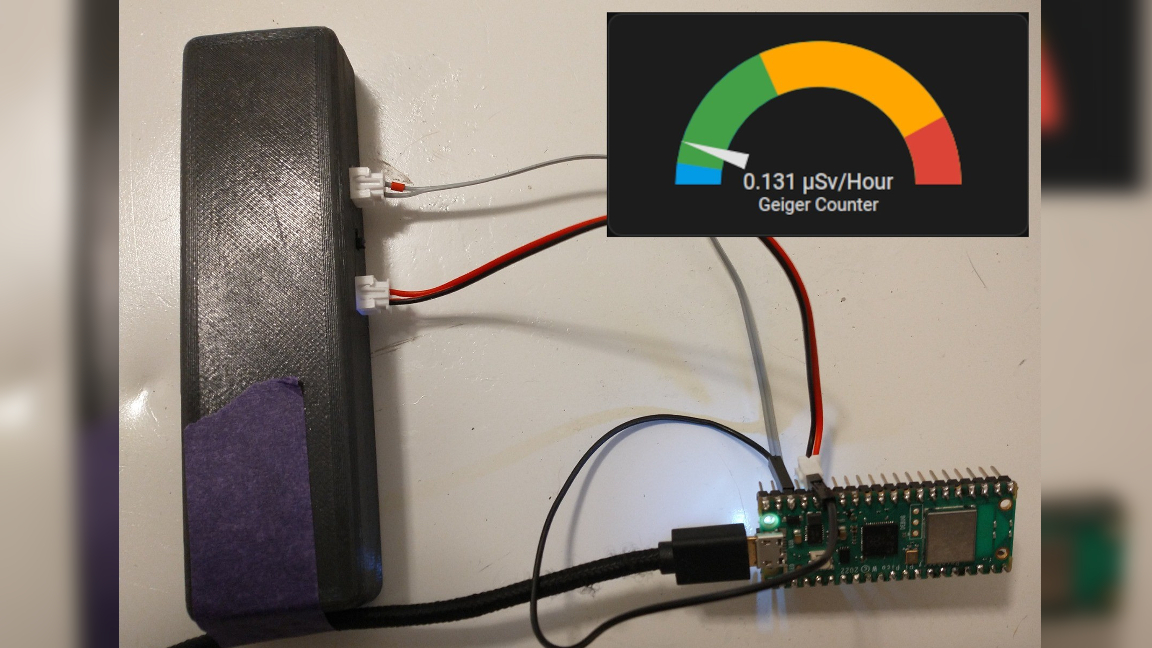Raspberry Pi Radiation Monitor Goes Wireless With Pico W

Get Tom's Hardware's best news and in-depth reviews, straight to your inbox.
You are now subscribed
Your newsletter sign-up was successful
We hope that none of our readers are ever concerned with radiation. However, if you need to track radiation levels you can thankfully do so with the help of our favorite SBC — the Raspberry Pi. Today we’re sharing a project created by Sboger that could potentially save lives. Using a Raspberry Pi Pico W, they’ve created a remote radiation monitor that transmits current radiation levels over Wi-Fi.
The driving module behind this project is a GGreg20_V3 Geiger counter module. This device is able to detect radiation levels with data that can be read by separate modules like a Raspberry Pi Pico W. In this case, Sboger is using ESPHome to receive data from the Pico W and process it into a useful gauge graphic.
In the project thread, Sboger explains how the Geiger module is calibrated by the manufacturer. This calibration figure should be considered in your code to help determine a baseline for background radiation. Once you know what the normal level is for your environment, you can take variances from that baseline to know when levels are higher than they should be.
The hardware used in this project is fairly simple. It uses a GGreg20_V3 Ionizing Radiation Geiger Counter which is connected to a Raspberry Pi Pico W. An ESP32 module is used to run ESPHome, a Home Assistant application that manages the data from the Pico W wirelessly which then processes the input from the Geiger counter into the graphic used to gauge the radiation levels.
Sboger was kind enough to share details about the code used in this project, including links to the ESPHome Home Assistant GitHub page that details how to integrate the GGreg20_V3 Geiger counter module. You can also find steps for setting up the Geiger counter with an Arduino but some modification will be necessary to use it with the Pico W instead.
To get a closer look at this Raspberry Pi project, check out the original thread shared to Reddit where Sboger breaks down not only how it works but all of the links you'll need to recreate the project at home. Be sure to follow Sboger for any future updates on this project.
Get Tom's Hardware's best news and in-depth reviews, straight to your inbox.

Ash Hill is a contributing writer for Tom's Hardware with a wealth of experience in the hobby electronics, 3D printing and PCs. She manages the Pi projects of the month and much of our daily Raspberry Pi reporting while also finding the best coupons and deals on all tech.